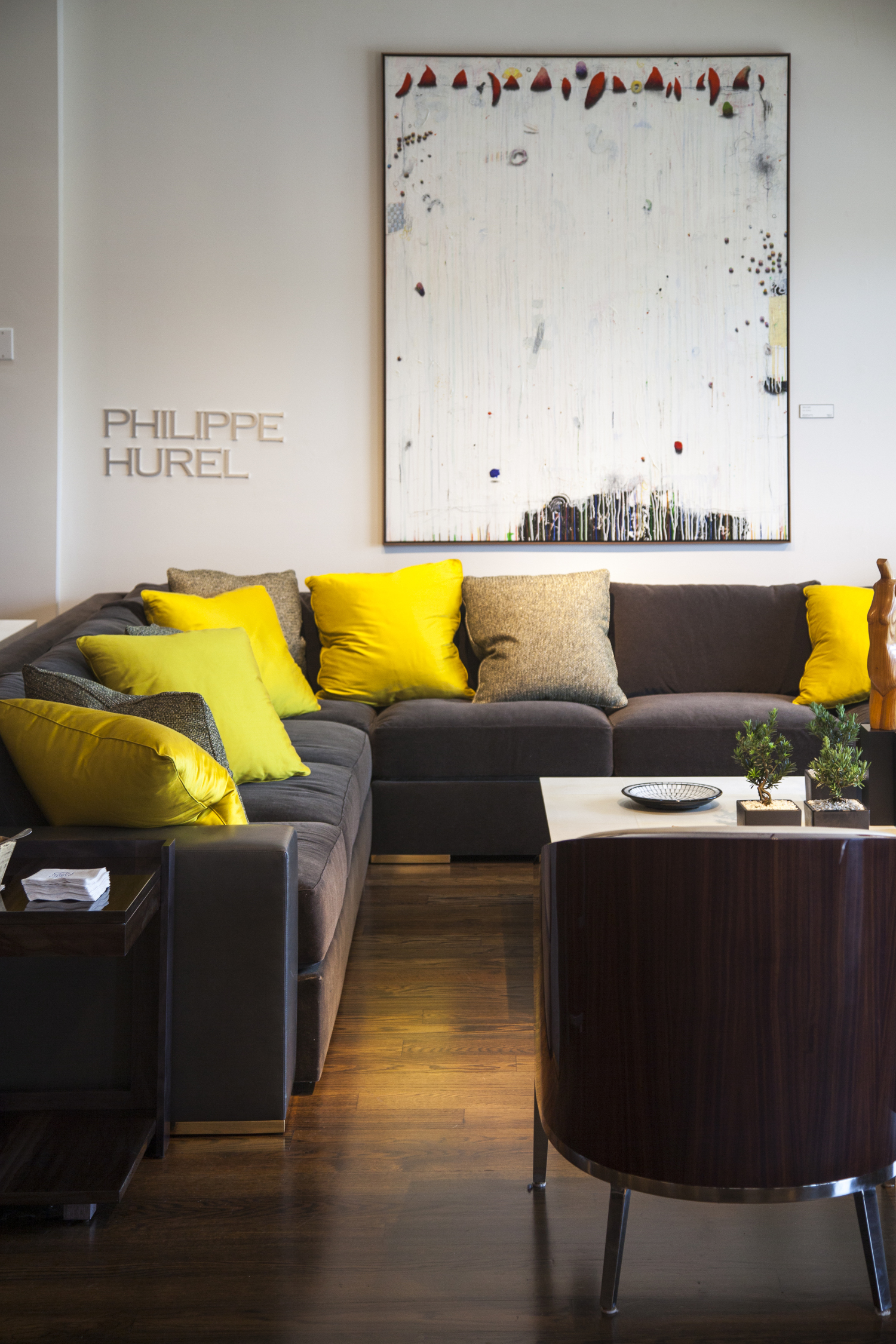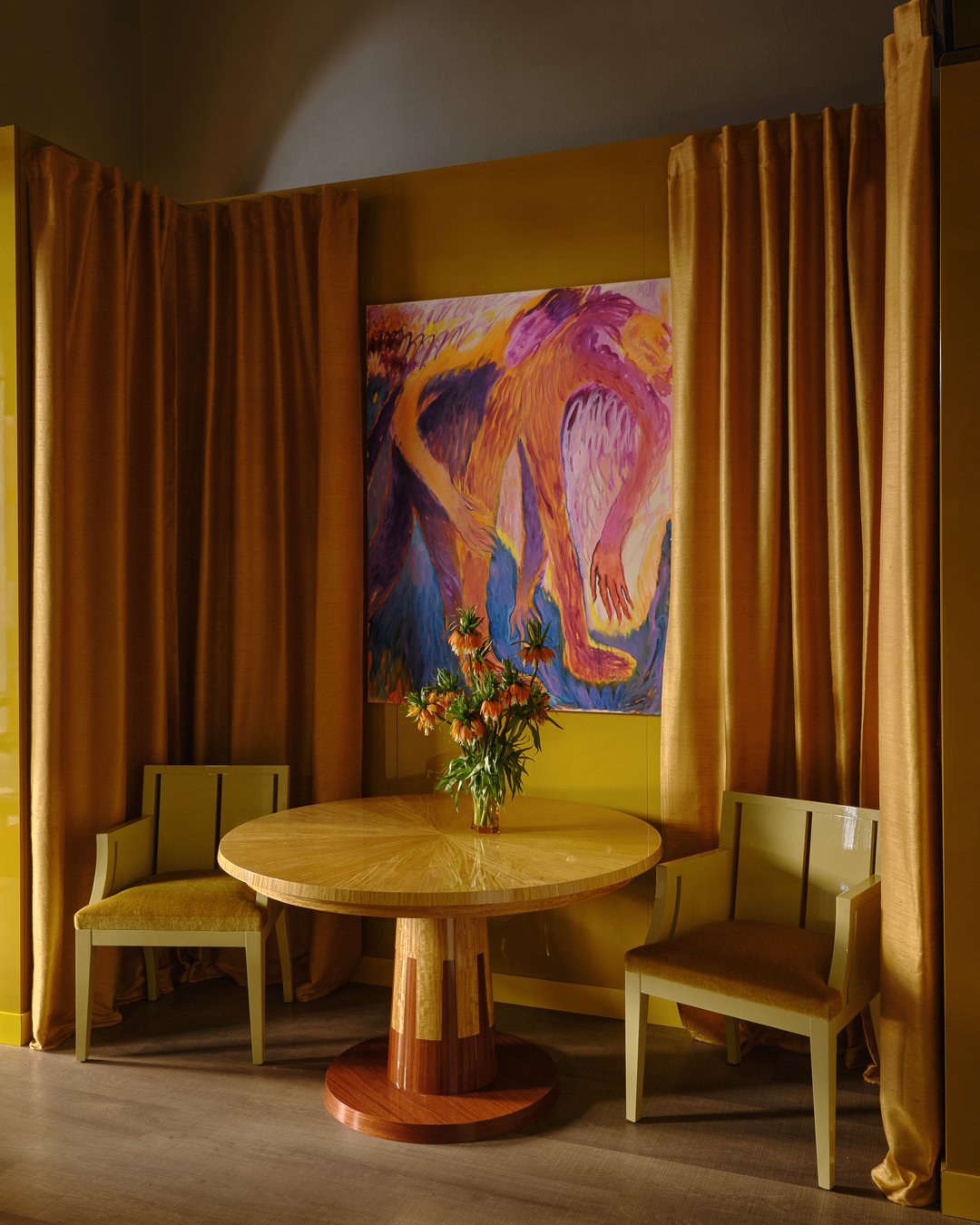One House, one Family, one region, one Heritage.
And 100 years of creation, craftsmanship and inspiration
A little bit of history...
1911 —
The Fabrique de Meubles de Coulombs is founded by Maurice Gouget.
In 1911, in Coulombs, midway between Paris and Chartres, Maurice Gouget established the Fabrique de Meubles de Coulombs. He began by producing bar and café counters to measure. Later he progressed to Louis XVI style bedroom and dining suites. These creations quickly gained in popularity and became desirable wedding dowries and family heirlooms. At that time the workshop also included a sales outlet that would open for business on Sundays.
At that time the workshop also included a sales outlet that would open for business on Sundays. The moniker “Fabrique de Meubles de Coulombs” was shortened to FMC. “More fashionable, more modern” exclaimed Pierre Hurel who took over the reins of the business in 1948 after wedding Denise, daughter of Maurice. With his experience in wider industry he successfully modernised the family business.
1937 —
Inspired by a piece by Leleu, the manufactory produces modernist furniture created by Loir for the Pavillon Ile de France at the Paris World’s Fair.
1948 —
After marrying the only daughter of Maurice Gouget,
Pierre Hurel succeeds his father-in-law as company director.
1968 —
Philippe Hurel, son of Pierre, takes his first steps in the family business. Two years later he takes over the running of the company.
Having worked his way from ground level up, Philippe Hurel, son of Pierre and Denise, provided the spark to ignite the revolution from royal and imperial to a contemporary style. Neither capricious nor given to edicts but rather endowed with an eye for the contemporary, Philippe Hurel espoused the strength of conviction to combine traditional craftsmanship with present day aesthetics. Robust, virile, elegant and enthusiastic, his style was forged and affirmed in this dramatic but ultimately necessary break with the past. This feat was all the more laudable given that in taking on the world of contemporary décor, Philippe Hurel never once turned his back on the family heritage.
2001 —
Inauguration of the Philippe Hurel showroom on the rue du Bouloi, close to the Palais Royal
2006 —
Construction of the new manufactory on the historical site
Inaugurated in 2006 on the historical site, the new manufactory perfectly reformulates the grand tradition of cabinetmaking while consistently applying imagination and creativity with an eye to the future. This manufactory is also a symbol. For many years Philippe Hurel ferociously resisted offshore relocation and fought to maintain local expertise ensuring de facto sustainable employment. This attitude is reflected in the workplace, now known as Maison Philippe Hurel, in that the majority of employees continue to evolve there throughout their careers.
Similar to the Philippe Hurel showroom in Paris, the Coulombs manufactory has become a window where clients with special orders are invited to come and see just how their furniture pieces are produced. Visitors can peruse operations from the cutting workshop through lacquering, assembly and finishing, as the entire process is located, controlled and overseen in a single area. Nowhere else would you find so much of the rare expertise, craftsmanship and artistry so vital to the creative process, united under a single roof. And only here could the associated bronze, leatherwork and horn workshops be so patiently federated together under the passionate guidance of Philippe Hurel.
2007 –
Maison Philippe Hurel is awarded the French label “Entreprise
du Patrimoine Vivant”
(Living Heritage Company label)
2009 –
Publication of the art reference work Philippe Hurel:
So Français !
2011 –
Celebration of the centenary of Maison Philippe Hurel.
2017 –
Showroom openings in Miami and Dallas
2024 –
MILAN DESIGN WEEK ANGLE DE VUE, Philippe Hurel x Tristan Auer
FOR THE FIRST TIME, PHILIPPE HUREL, THE FRENCH HOUSE RENOWNED FOR EXCEPTIONAL FURNITURE DESIGN, TAKES RESIDENCE AND JOINS THE MILANO DESIGN WEEK. FOR THIS OCCASION, TRISTAN AUER DELVED INTO THE TREASURE CHEST LEFT BY PHILIPPE HUREL. from this EXPLORATION, TWELVE PIECES, ALL BEARING THE DESIGNER’S SIGNATURE, WERE SELECTED TO BRING TO LIFE FOUR SCENE? FOUR PERSPECTIVE, WHERE FURNITURE BECOMES ACTORS, DRAPPED IN NEW PERSONALITIES, THANKS TO THE BOUNDLESS TALENTS OF ARTISANS, AND THE LIMITLESSE RANGE OF FINISHES OFFERED BY THE HOUSE. “ANGLE DE VUE” IS A NEW PERSEPECTIVE BROUGHT BY TRISTAN AUER ON THE HUREL HERITAGE, HIGHLIGHTING ITS VERSATILITY AND TIMELESSNESS.















